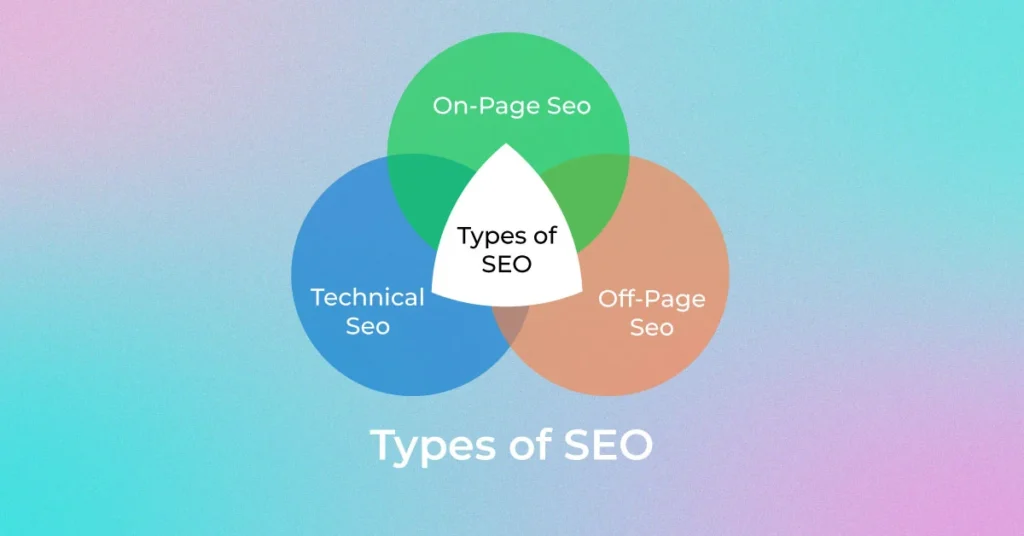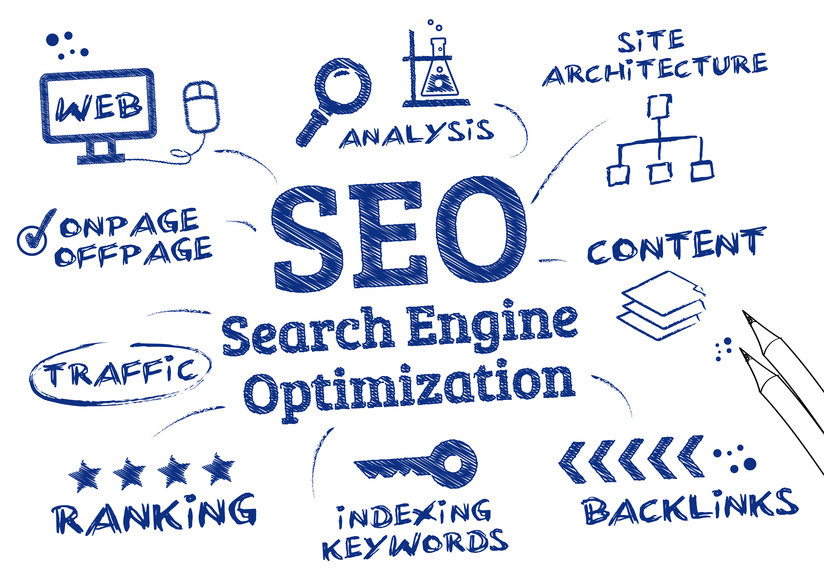The Complete Guide to SEO Studio Tools: Elevate Your Search Engine Optimization Game
I. Introduction to SEO Studio Tools
A. Definition of SEO Studio Tools
SEO studio tools are software applications designed to improve and streamline various aspects of search engine optimization. They help users analyze websites, conduct keyword research, monitor rankings, and track backlinks, among other essential tasks. Think of them as your trusty toolkit for getting your website out in the crowded digital landscape.
B. Importance of SEO in Digital Marketing
In today’s world, where most online experiences start with a search engine, SEO is crucial for visibility and success. Good SEO practices attract organic traffic, improve user experience, and ultimately lead to higher conversions. Without effective SEO, your stunning website can easily remain buried under the vast mountain of online content.
C. Overview of Key Features to Look For
When you’re on the hunt for SEO tools, look for key features such as:
- User-friendly interface
- Comprehensive reporting capabilities
- Integration options with other tools
- Regular updates to stay aligned with evolving SEO practices
- Support and resources to guide you through usage

II. Types of SEO Studio Tools

A. Keyword Research Tools
1. Functionality and Purpose
Keyword research tools help uncover relevant search terms people use to find information related to your content. They play a pivotal role in shaping your content strategy and targeting the right audience.
2. Popular Tools and Their Features
Some popular keyword research tools include:
- Google Keyword Planner: Free with a Google Ads account, it offers insights on keyword volume and competition.
- Ahrefs: Paid tool with a robust database that provides keyword suggestions and search volume estimates.
- Ubersuggest: A user-friendly tool offering keyword suggestions, SEO difficulty scores, and more.

3. How to Choose the Right Keyword Tool
Pick a tool that meets your needs based on:
- Budget: Free vs. premium tools.
- Specific features that align with your SEO strategy.
- Community reviews and user experiences.
B. On-Page SEO Analysis Tools
1. Importance of On-Page SEO
On-page SEO involves optimizing individual pages to rank higher and earn more relevant traffic. From meta tags to image alt text, every element plays a role.
2. Key Metrics to Consider
Look out for metrics such as:
- Page speed
- Mobile-friendliness
- Meta title and description optimization
- Content relevance and keyword placement
3. Examples of Effective On-Page Tools
Tools like SEMrush, Yoast SEO, and Moz On-Page Grader provide comprehensive insights and suggestions to enhance on-page SEO.
C. Backlink Analysis Tools
1. Role of Backlinks in SEO
Backlinks serve as endorsements from other websites, signaling to search engines that your content is credible and valuable. They play a significant role in ranking.
2. How to Evaluate Your Backlink Profile
Assess your backlink profile by looking for:
- The number of referring domains
- The quality of those domains
- Anchor text diversity
3. Comparison of Backlink Tools
Popular tools include:
- Ahrefs: Excellent for backlink analysis with a vast database.
- Majestic: Focuses exclusively on backlinks, providing unique metrics like Trust Flow and Citation Flow.
- Moz Link Explorer: Ideal for analyzing your and competitors’ backlinks easily.
D. Rank Tracking Tools
1. The Need for Rank Monitoring
Monitoring your website’s ranking is critical to understanding how SEO strategies impact your visibility and traffic.
2. Factors That Influence Rankings
Consider factors such as:
- Content quality
- Backlink profile
- User engagement metrics
- Technical SEO aspects
3. Leading Rank Tracking Solutions
Tools like SEMrush, Rank Tracker, and SERPWatcher help keep track of ranking positions and movements over time.
E. Technical SEO Tools

1. Importance of Technical SEO
Technical SEO ensures that search engines can crawl and index your website effectively. It encompasses site speed, mobile optimization, and other backend elements.
2. Tools for Site Audits
Use tools like Screaming Frog, Google Search Console, and GTmetrix for comprehensive site audits that pinpoint technical SEO issues.
3. Common Technical SEO Issues and Solutions
Common issues include slow load times, broken links, and duplicate content. Regular audits can help identify and rectify these problems swiftly.
III. How to Effectively Utilize SEO Studio Tools

A. Setting Clear SEO Goals
1. Importance of Goal Setting in SEO
Good goals direct your efforts and help measure success. Clear objectives give you a roadmap to follow in your SEO journey.
2. Types of SEO Goals (Traffic, Conversions, etc.)
Goals can include:
- Increasing organic traffic
- Boosting page load speed
- Enhancing conversion rates.
3. Measuring Success Against Goals
Use analytics to track and evaluate the performance of your goals over time. Look for trends and adjust your strategies accordingly.

B. Integrating Multiple Tools for Comprehensive Insights
1. How to Combine Different Tools
For a holistic approach, consider using tools that complement each other. For example, use Google Analytics with SEMrush to analyze traffic and keyword performance side by side.
2. Creating a Workflow for Efficiency
Draft a simple workflow where you define what metrics to track daily, weekly, and monthly. This way, you ensure everything is checked regularly without added stress.
3. Case Study: A Successful Integration Example
Consider a blog that used a combination of Ahrefs for keyword analysis and Google Analytics for traffic monitoring. This integration helped the author uncover high-potential keywords that led to a 30% traffic increase in just three months.

C. Regular Audits and Updates
1. Importance of Regular Site Audits
Regular audits help you stay on top of performance issues, adapt to algorithm changes, and refine your strategies continuously.
2. How Often to Use SEO Tools
Aim for monthly audits for comprehensive checks, while some metrics like rankings can be tracked weekly or even daily.
3. Adapting Strategies Based on Data Insights
Use insights gained from audits to fine-tune your approach. For example, if a specific blog post isn’t performing well, consider updating it or promoting it more heavily.
IV. Challenges and Limitations of SEO Studio Tools

A. Data Accuracy and Reliability
1. Potential Data Inaccuracies
Every tool is flawed. Data can sometimes be skewed due to geographic location and personal search history.
2. Factors Affecting Reliability
Changes to search engine algorithms or tool databases can impact the accuracy of the data you receive.
3. Best Practices for Ensuring Accurate Data
Cross-reference results from multiple tools and keep an eye on industry updates that may inform your strategies.

B. Cost Considerations
1. Overview of Pricing Models for Tools
Some tools offer subscription models, while others are one-time purchases. Prices can range from free to several hundred dollars monthly.
2. Cost vs. Value Assessment
Always evaluate the potential ROI of any tool. Determine whether the insights they provide will justify the expense.
3. Free vs. Paid Tools: Pros and Cons
Free tools are a great starting point, but they might lack depth. Paid tools often provide advanced features and support, making them valuable for serious SEO efforts.

C. Learning Curve and User Experience
1. Complexity of Some Tools
Many robust SEO tools can feel overwhelming at first. It’s okay to take your time to learn their functionalities.
2. Resources for Learning
Numerous tutorials, forums, and webinars can help you become familiar with how to use these tools effectively.
3. Tips for Optimizing User Experience
Read user guides and engage with communities for support. Make a habit of exploring new features as tools update regularly.

V. Future Trends in SEO Studio Tools
A. Evolving Technology in SEO Tools
1. Impact of Artificial Intelligence and Machine Learning
AI is beginning to play a substantial role in SEO tools, offering insights that are more predictive than ever.
2. Emerging Features to Watch For
Keep an eye out for tools that incorporate voice search optimization, automated reporting, and enhanced user experience metrics.
3. Predictions for Future Tool Developments
Expect more integration between SEO and user experience as search engines increasingly emphasize engagement metrics in rankings.

B. Integration with Other Digital Marketing Tools
1. The Rise of All-in-One Platforms
The future may see more all-in-one platforms that combine SEO, social media, and content marketing tools into a single interface.
2. Synergy Between SEO and Other Marketing Disciplines
These integrations will lead to more well-rounded marketing strategies, maximizing the effectiveness of each discipline.
3. Examples of Successful Integrations
Consider platforms like HubSpot, which integrate SEO tools with customer relationship management, allowing seamless data flow and analysis.

C. The Shift Towards User Experience and Engagement Metrics
1. Importance of User Engagement in SEO
Engagement metrics such as time on page and bounce rate are becoming increasingly important in determining rankings.
2. Tools That Focus on User Experience
Look for tools that analyze engagement metrics to help refine your content and site structure.
3. Future Measurement Trends in SEO
As search engines evolve, expect user engagement to play a central role in determining effectiveness.

VI. FAQs
A. What are the best free SEO tools available today?
Some of the best free tools include Google Keyword Planner, Ubersuggest, and MozBar.
B. How do I decide which SEO tool is right for my needs?
Consider your specific requirements, budget, and how each tool aligns with your SEO goals.
C. Can SEO tools guarantee improved rankings?
While they can provide valuable insights to improve your SEO strategy, no tool can guarantee rankings since many factors play a role.
D. How often should I update my SEO strategies based on tool outputs?
Regular audits and data monitoring should guide updates—monthly for comprehensive checks and more frequently for tracking specific metrics.
E. What are the key metrics I should focus on using SEO tools?
Key metrics include organic traffic, bounce rates, click-through rates, and keyword rankings.

